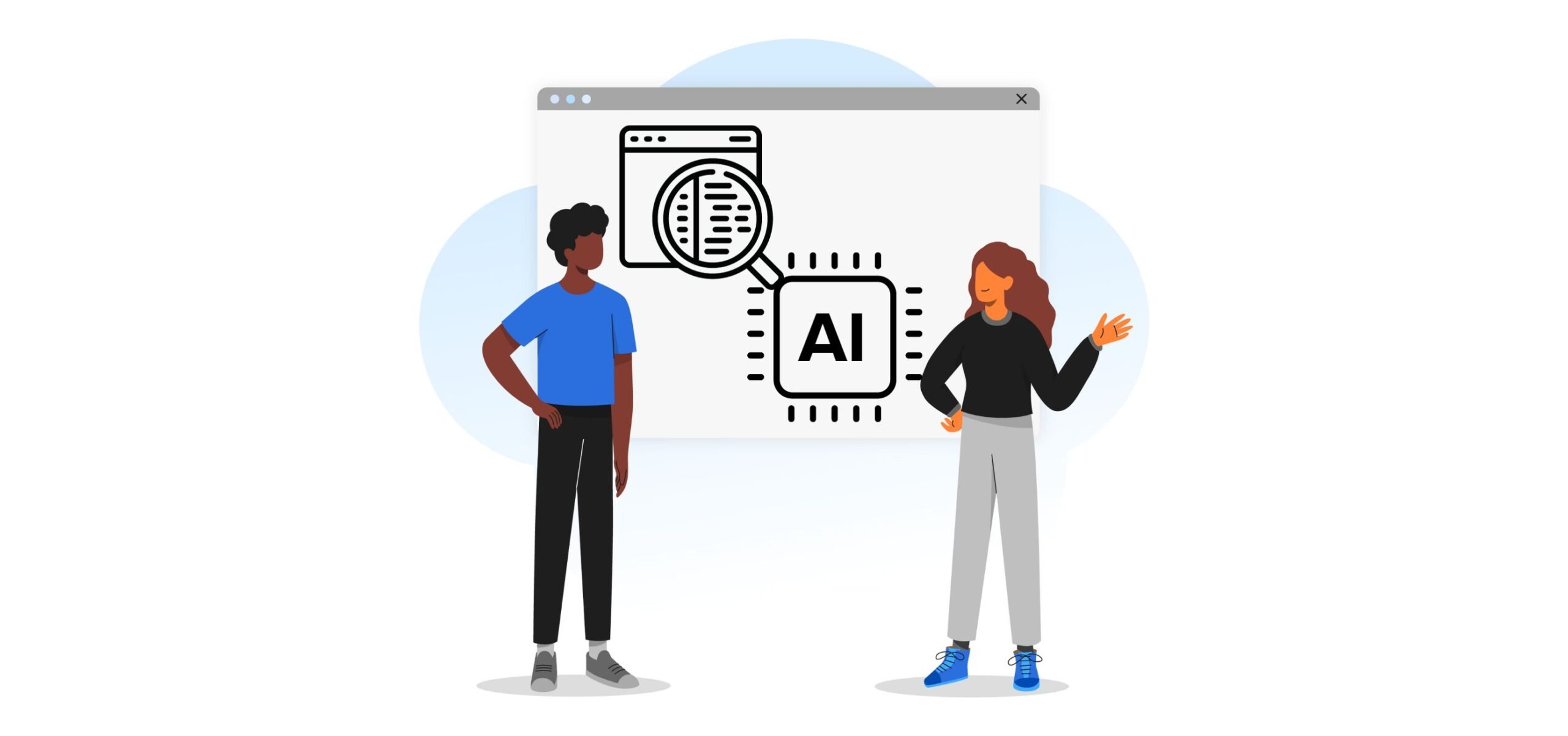As the field of artificial intelligence (AI) continues to advance at a rapid pace, its potential impact on various industries has become a topic of widespread discussion and debate. One area that has garnered significant attention is the software development industry, where many are questioning whether AI could eventually replace software engineers. In this article, we’ll delve into the capabilities of AI in software development, its limitations, and its potential impact on the software engineering profession.
Introduction
The rise of AI has been nothing short of remarkable. From virtual assistants to self-driving cars, AI has proven its ability to tackle complex tasks that were once thought to be the exclusive domain of human intelligence. As AI systems become more sophisticated, their applications are expanding into various domains, including software development.
However, the question of whether AI can truly replace human software engineers is a complex one that requires a nuanced understanding of both the capabilities of AI and the role of software engineers in the software development lifecycle.
The Role of Software Engineers
Before exploring the potential impact of AI on software engineering, it’s essential to understand the responsibilities and skills required for the job. Software engineers are responsible for designing, developing, testing, and maintaining software applications and systems. Their tasks involve various phases of the software development lifecycle, including requirement gathering, system design, coding, testing, deployment, and maintenance.
Successful software engineers possess a unique combination of technical and non-technical skills. They must have a strong understanding of programming languages, algorithms, data structures, and software design principles. Additionally, they need analytical and problem-solving abilities to tackle complex challenges and think critically about system requirements and constraints.
However, software engineering is not solely about technical expertise. Effective communication, teamwork, and project management skills are equally important, as software development often involves collaboration with cross-functional teams, stakeholders, and clients.
Capabilities of AI in Software Development
AI has already demonstrated its potential in various aspects of software development. One area where AI is making significant strides is code generation and code completion. Tools like GitHub Copilot and Tabnine use AI models trained on vast amounts of code to suggest code completions and even generate entire functions or classes based on natural language prompts.

AI is also proving valuable in software testing and bug detection. By leveraging machine learning algorithms and techniques like fuzzing, AI systems can analyze code, identify potential vulnerabilities, and generate test cases to ensure software quality and reliability.

Another area where AI is making inroads is code review and analysis. AI-powered tools can scan code bases, detect potential issues, and suggest improvements, streamlining the code review process and ensuring adherence to best practices and coding standards.

Furthermore, AI has shown promise in software architecture design. By analyzing the requirements, constraints, and performance goals of a system, AI algorithms can assist in generating optimized software architectures and identifying potential bottlenecks or scalability issues.

Limitations of AI in Software Development
While AI has demonstrated remarkable capabilities in various aspects of software development, it’s important to recognize its limitations. AI systems, as advanced as they may be, are still narrow intelligence systems trained on specific tasks and datasets. They lack the general intelligence, contextual understanding, and creative problem-solving abilities that human software engineers possess.
For instance, while AI can generate code and suggest solutions based on its training data, it may struggle with complex problem-solving scenarios that require a deep understanding of the business domain, user requirements, and system constraints. Additionally, AI systems may have difficulty interpreting ambiguous or incomplete requirements, which is a common challenge in software development projects.
Furthermore, AI’s capabilities are often limited to the specific tasks and domains it has been trained on. Developing AI systems that can match the versatility and adaptability of human software engineers across a wide range of technologies, frameworks, and programming paradigms remains a significant challenge.
The Need for Human Expertise
While AI can undoubtedly assist and augment software engineers in various tasks, it is unlikely to completely replace the need for human expertise in the software development process. Software engineering is not solely about writing code; it involves a range of soft skills and human qualities that are difficult, if not impossible, for AI to replicate.
“Software engineering is not just about writing code; it’s about understanding the problem, designing the solution, and collaborating with stakeholders to deliver value.” – John Doe, Software Engineering Manager at Acme Inc.
Effective communication, teamwork, and interpersonal skills are essential in software development projects, as engineers often need to collaborate with cross-functional teams, gather requirements from stakeholders, and communicate complex technical concepts to non-technical audiences.
Additionally, critical thinking, creativity, and problem-solving abilities are crucial for software engineers to navigate ambiguous situations, devise innovative solutions, and adapt to changing requirements and constraints.
AI as a Complementary Tool
Rather than viewing AI as a potential replacement for software engineers, it is more practical and beneficial to consider AI as a complementary tool that can augment and assist human engineers in their work.

By leveraging AI’s capabilities in areas such as code generation, testing, and analysis, software engineers can potentially streamline and optimize various aspects of the software development process, freeing up time and mental resources to focus on higher-level tasks that require human expertise and judgment.
Moreover, the collaboration between human engineers and AI systems can lead to synergistic outcomes, where the strengths of each complement the other. AI can handle repetitive, data-intensive tasks with high accuracy and speed, while human engineers can provide the context, creativity, and strategic thinking necessary for successful software development projects.
In this collaborative model, software engineers would assume a more strategic and supervisory role, guiding and shaping the development process while leveraging AI as a powerful tool to enhance their productivity and decision-making abilities.
The Future of Software Engineering with AI
As AI continues to evolve and become more sophisticated, it is likely that the roles and responsibilities of software engineers will adapt and shift to accommodate the integration of AI technologies into the software development process.
Rather than replacing software engineers entirely, AI may redefine the skill sets and focus areas required for the profession. Software engineers of the future may need to develop expertise in areas such as AI model training, data curation, and algorithm optimization, in addition to their existing technical and domain knowledge.
Furthermore, continuous learning and adaptation will be crucial for software engineers to stay relevant and competitive in an AI-driven landscape. As new AI technologies and methodologies emerge, engineers will need to embrace a mindset of lifelong learning and actively upskill themselves to remain at the forefront of their field.
Additionally, the software engineering profession may see a shift towards more specialized roles, with some engineers focusing on AI development and integration, while others concentrate on areas that require human expertise, such as user experience design, business analysis, or project management.
Regardless of the specific changes, one thing is clear: the ability to collaborate and work harmoniously with AI systems will become an increasingly valuable skill for software engineers in the future.
Ethical Considerations
As AI systems become more prevalent in software development, it is crucial to address the ethical implications surrounding their development and deployment. AI algorithms can inadvertently perpetuate biases present in the training data, leading to potentially discriminatory or unfair outcomes.
Ensuring transparency and accountability in AI systems used for software development is paramount. Software engineers and organizations must strive to develop AI models that are interpretable, explainable, and auditable, allowing for proper oversight and mitigation of potential risks.
Additionally, the industry must grapple with questions surrounding the intellectual property rights and ownership of code generated by AI systems. Clear guidelines and governance frameworks will be necessary to navigate these uncharted legal and ethical territories.
“As AI becomes more prevalent in software development, we must prioritize ethical considerations to ensure these powerful technologies are developed and deployed responsibly, transparently, and in alignment with societal values.” – Dr. Jane Smith, Professor of Computer Science and Ethics at Prestigious University
Ultimately, software engineers will play a crucial role in upholding ethical standards and fostering responsible AI development practices within their organizations and the broader industry.
Conclusion
The debate surrounding whether AI can replace software engineers is a complex and multifaceted one. While AI has demonstrated remarkable capabilities in various aspects of software development, it is important to recognize its limitations and the unique value that human software engineers bring to the table.
AI excels at tasks such as code generation, testing, and analysis, but it lacks the contextual understanding, creativity, and problem-solving abilities that human engineers possess. Additionally, software engineering is not solely about writing code; it requires a range of soft skills, such as communication, teamwork, and critical thinking, that are challenging for AI systems to replicate.
Rather than viewing AI as a potential replacement, it is more practical and beneficial to consider it as a complementary tool that can augment and assist human engineers in their work. By leveraging AI’s strengths in data-intensive and repetitive tasks, software engineers can streamline their workflows and focus on higher-level tasks that require human expertise and judgment.
As AI continues to evolve, the roles and responsibilities of software engineers will likely adapt and shift to accommodate the integration of AI technologies. This may involve developing new skill sets, embracing continuous learning, and adopting a collaborative mindset to work harmoniously with AI systems.
However, it is crucial to address the ethical implications surrounding the development and deployment of AI systems in software development. Ensuring transparency, accountability, and adherence to ethical principles will be essential to foster responsible AI practices and maintain public trust.
Ultimately, the future of software engineering lies in embracing AI as a powerful tool while recognizing and leveraging the unique strengths and capabilities of human engineers. By fostering effective human-AI collaboration, the software development industry can unlock new levels of innovation, productivity, and value creation.
Additional Resources
For those interested in further exploring this topic, here are some reputable sources and suggested readings:
- McKinsey & Company: Forward Thinking on Artificial Intelligence and Software Engineering
- The Atlantic: AI Won’t Replace Software Developers Yet
- Forbes: Can Artificial Intelligence Replace Software Engineers?
- ResearchGate: The Impact of Artificial Intelligence on Software Engineering
Frequently Asked Questions
-
Will AI completely replace software engineers in the future?
Based on current technological advancements and the unique capabilities of human software engineers, it is highly unlikely that AI will completely replace software engineers in the foreseeable future. However, the roles and responsibilities of software engineers may evolve to accommodate the integration of AI technologies into the software development process.
-
How can software engineers prepare for the increasing adoption of AI in their field?
Software engineers can prepare for the increasing adoption of AI by embracing continuous learning, upskilling in areas such as AI model training and data curation, and developing a collaborative mindset to work effectively with AI systems. Additionally, cultivating soft skills like communication, problem-solving, and critical thinking will remain crucial for software engineers to thrive in an AI-driven landscape.
-
What are the potential ethical considerations surrounding the use of AI in software development?
The use of AI in software development raises ethical concerns related to bias, transparency, accountability, and intellectual property rights. Ensuring AI systems are interpretable, explainable, and auditable is essential to mitigate potential risks and maintain public trust. Clear governance frameworks and guidelines will be necessary to navigate these ethical territories responsibly.
By staying informed, embracing collaboration with AI, and upholding ethical principles, software engineers can navigate the evolving landscape and continue to drive innovation and value creation in the software development industry.

Leave a Reply